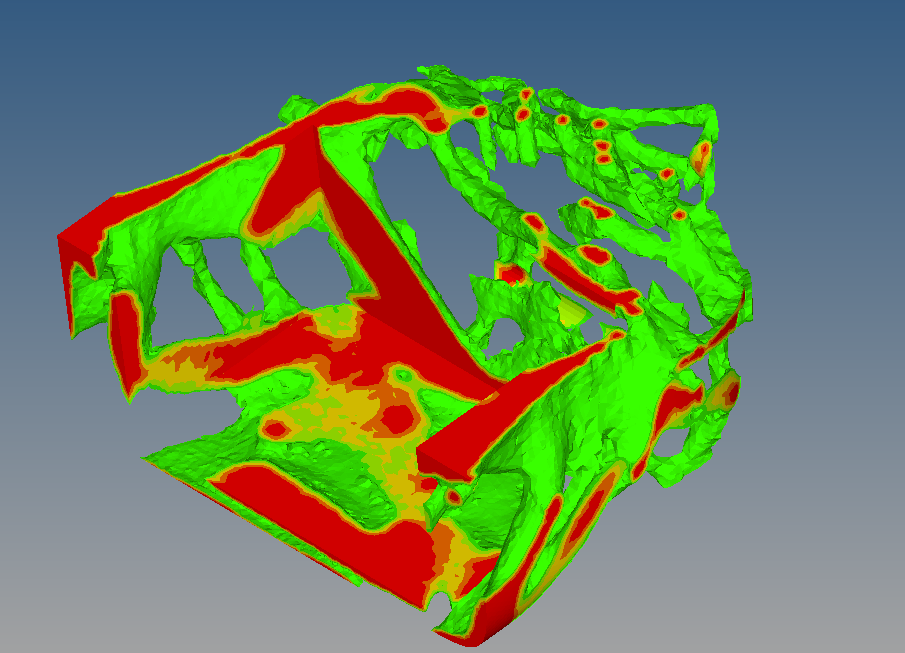Hello,
I have this question about Optistruct results:
I have this model, applied with constraints and loads.
An optistruct analysis is performed with weight objectives to minimize volume, and one of the results is shown underneath:

This is not the final result, but I am wondering: is there a possibility to import this result back into CAD software?
Since it is for 3D-printing purposes I will need to be able to translate this mesh, refine this, and preferably save it as STL in the end.
Any idea's?
Best regards,
Joep